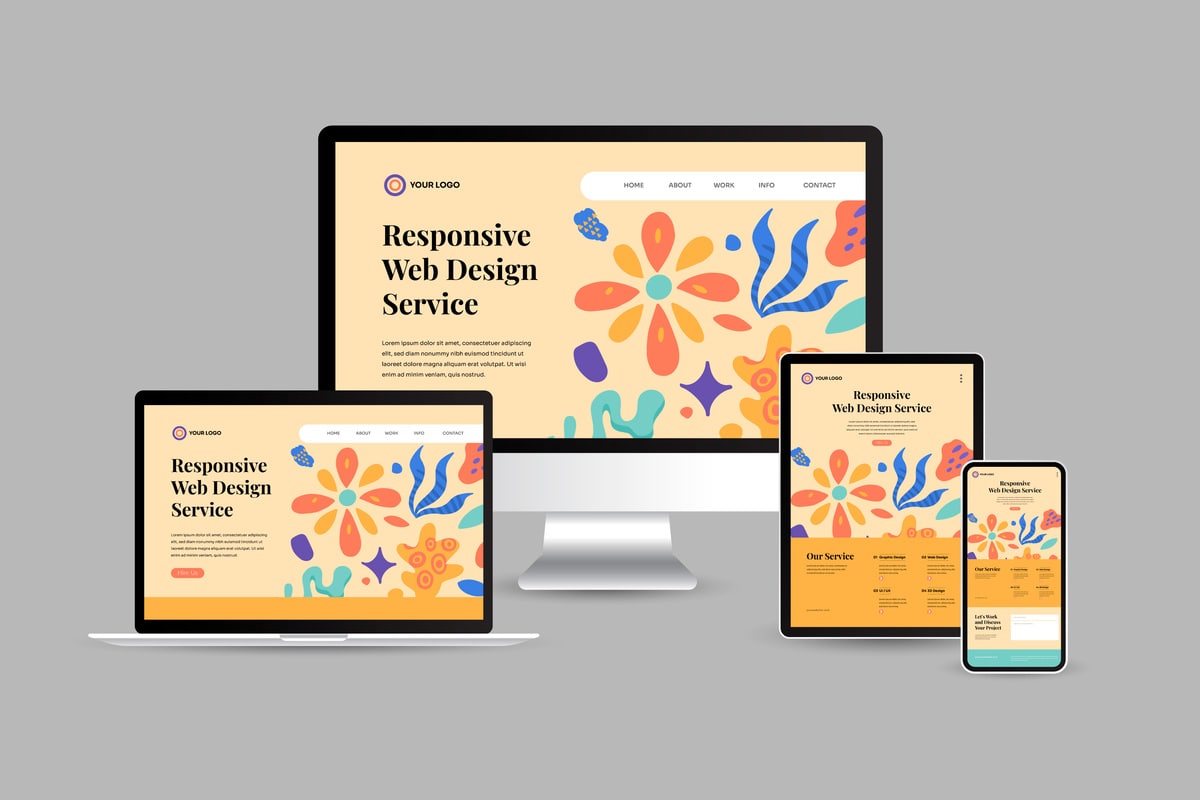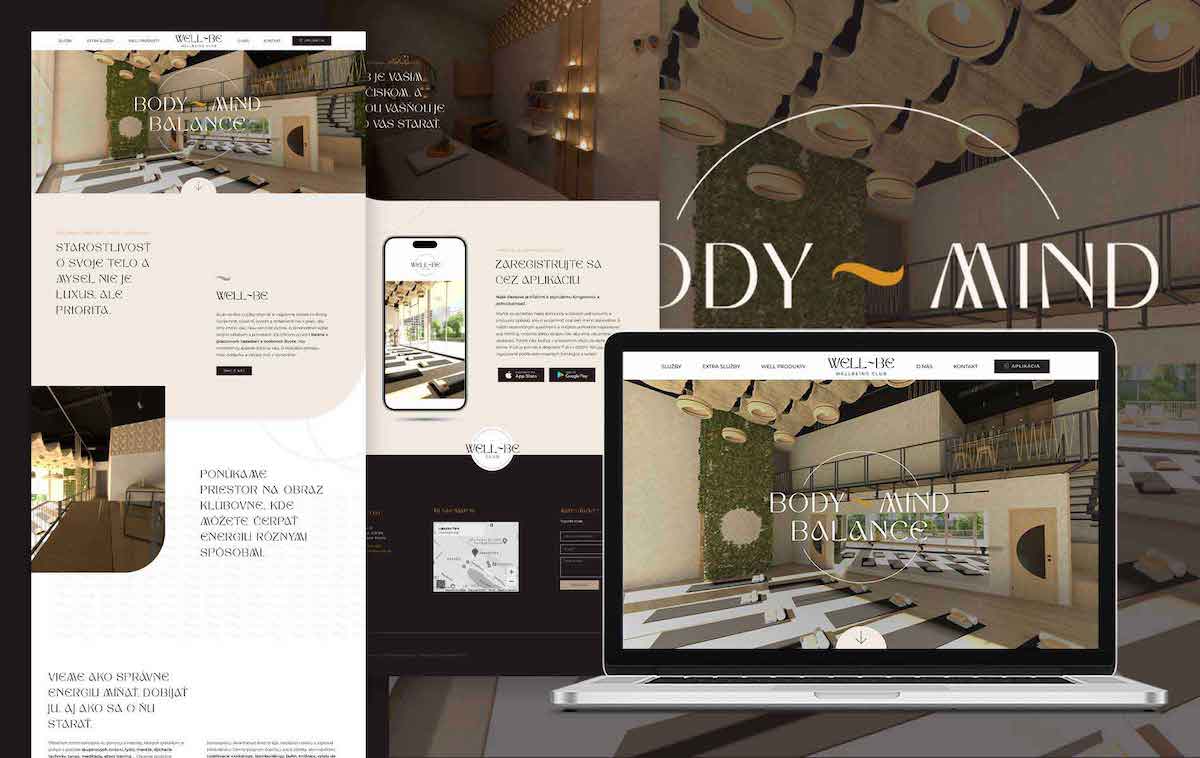What to Know Before Choosing Your Web Design
In this day and age, every business needs a website. It is your online ambassador, sales representative, storefront, point of contact, and just about every other aspect of your business under the sun, all presented 24/7 to your online audience.
It will come as no surprise then, that choosing how to design one, whether with a custom website or a pre-built template, is a big deal. There are a lot of considerations to take into account, such as your business needs, your budget, and your timeline, and it can be overwhelming to work out which type of website will fit your considerations best.
Luckily, this handy guide is here to help, so you can focus your attention on what actually matters, getting you the best website possible.

Custom vs Template Websites
There are two primary ways to build your web design:
- With a pre-built, customizable template
- From scratch, entirely custom-made
There is absolutely a time and a place for each type of web design, but first, let’s dive into each a little further and understand the custom vs template website approach more clearly.
Template Websites
Template-based websites are websites that have been modified around a pre-existing template structure in order to accommodate a business’ needs. This is an extremely popular option, especially among newer or smaller businesses who don’t require a lot of specific features and are tighter on time or money. For those evaluating the custom vs template website tradeoff, templates often win for affordability and speed.
The simplest and quickest way to build a template website is through a web builder such as Wix or Squarespace, which typically offer affordable plans and various themes for you to build within, though this is the most limited way to do it. With this method, you can get your website up and running pretty quickly, usually without even needing a developer’s help, but you will run into roadblocks when it comes to more complex features such as e-Commerce.
The other method is to use a content management system such as WordPress, and use one of the wide variety of templates from Theme Forest or Elegant Themes to build around. There are a ton of affordable and professional options to choose from, though not each one is fully responsive, which is something to look out for as responsive design is an absolute must in today’s digital environment.

Many pre-built templates include necessary features that many businesses will require in some form. However, having these pre-built can impact things like website speed and SEO performance, so building your website around a template which includes more features than your company actually needs (as is often the case) can hurt your web performance unnecessarily, another drawback in the custom vs template website comparison.
Template Website Pros
-
Cheaper than Custom Websites
Most pre-built templates typically sell from $0 to around $80, while website builder plans range from roughly $0-$50/month. Discounting hosting and maintenance costs, as well as any development help you may get, template websites are undeniably the cheaper option.
-
Faster to Market
The very idea of a template is that the general theme and layout is already there, ready for you to input your content and launch it, which clearly takes less than building the entire website from scratch. After all, the faster your website is up and running, the faster you can start getting customer conversions.
-
Wide Variety of Themes
Though customization is limited, there are still thousands of templates to choose from that have been built by very talented web designers. The options have become so sophisticated that there are many industry-specific templates for you to choose from that will automatically be more tailored to your business’ specific needs.

Template Website Cons
-
Limited Customization
Far and away the biggest drawback of template websites is the lack of ability to tailor them to your business’ specific needs. Your company has a set of unique needs and goals and not every website template will meet them all or even enable you to incorporate your branding effectively. Any third-party features you do end up incorporating will slow your website down considerably, and even if the template website you use serves you well at the beginning of your online journey, you will likely become boxed in by the design as your business evolves.
-
Can’t Guarantee Uniqueness
In the online world, uniqueness is king, and standing out from your competitors is a really important aspect of doing business. With template websites, there is no guarantee at all that other companies online aren’t using the exact same template as you, which will really reduce the impact your website has on your market.

-
Not Always Responsive or Search Engine Friendly
Websites really need to work well on every search engine and every device in order to ensure that you’re not alienating any of your visitors, but not every template will. SEO is not organically built into template websites, meaning that you will have to invest in additional services in order to make sure your site is properly indexed, as well as extra help making your site responsive which will undoubtedly cause problems down the road.
-
Lack of Support
Website builders and content management systems are typically stand-alone platforms which either require you to build your website yourself or to employ outside help. This means that for the most part, you are on your own and if/when you run into trouble, you will not have as robust a support system to back you up.
Who Should Use a Template Website?
Template websites, though the simpler option, are still viable for many businesses. Those with lower budgets, such as small businesses and independent creatives can make do with template websites, at least as a good starting point.
If your company only needs basic features, any upfront costs that are saved from not choosing a customized design can be reinvested into your SEO or link-building strategies, ensuring that you are getting the most out of your template website.
![]()

Custom Websites
For any more sophisticated project, a custom website is absolutely the way to go. Custom web projects will involve at the very minimum a web designer/developer, but usually they require a dedicated agency or team that is committed to working on your company’s site.
With a custom website, every page and feature is created from scratch in order to accommodate your business’ needs, giving your website the additional freedom to evolve as your company does. Your website will be built with solely your company in mind, meaning that you won’t have to deal with unnecessary features or pre-packaged themes slowing you down.
This also means that your SEO value will kick off a lot higher than it would with a template site, because your development team will be including SEO strategies that work for your company as your site is being developed.
The flip side, of course, is that a custom design will take a considerable investment of time and money, but the return on interest is always entirely worth it if done properly.
Custom Website Pros
-
Entirely Customizable
It goes without saying that custom built websites will be tailored exactly to your business goals, needs, and target audience. Working with a development team you will get so much more, such as competition analysis and an in-depth understanding of the specifics of your industry requirements, all incorporated just for you. This also means that your website will be the only one of its kind on the web, helping you to stand out amongst the noise.

-
Responsive and Search Engine Friendly
Web developers are experts at building websites that not only work for you, but for your users and the search engines they will be finding you on. Your website will be responsive, meaning it will adapt to any device, including mobiles. It will also have SEO incorporated from the start, meaning that search engines will value it a lot more than your average template website.
-
Can Grow as Your Business Does
With custom websites, updating and editing is easy because you don’t have to worry about the confines of a template. Your web development team will work with you to ensure you know how to easily update your content, but even more importantly, incorporating new features, larger capacity requirements, and expanded capabilities will be a seamless effort as your business evolves. New additions will not slow your website down to the same level as they would on a template website because your web developers will be able to optimize and streamline the code without worrying about trying to marry third-party features and immovable structures.
-
Ongoing Support
Working with a team or a web developer means that you always have real people on hand to help whenever you run into a problem. Not only that, but because they are the ones who will have built your website in the first place, they will have the most in-depth understanding of its operation, and so the level of support you are offered will be that much higher and is of course always available.
Custom Website Cons
-
More Expensive than Template Websites
As custom websites involve hiring an agency and their specific skill set, then creating the entire project from scratch, the cost will inevitably be a lot higher than employing your standard pre-built template. While you are absolutely paying for quality, the higher price tag (typically anywhere from $5,000 to over $25,000) is not viable for every business.

-
Slower to Complete
Building a custom website is a long process that starts with in-depth pre-production conversations and then goes through the stages of design mockups, development, revisions, and eventually, launch. These steps can take time, especially if they are done right, and are usually well worth the wait unless your main priority is getting your website up and running as quickly as possible.
Who Should Use a Custom Website?
Custom websites are definitely the way to go for any company that has the budget and is serious about their online presence. The money and time is well worth the performance and support that you will get out of a custom website, especially if you have business needs that extend beyond the basics that come with a template.
E-Commerce stores in particular should consider custom building their websites, as their capability requirements are much higher and they rely on high quality traffic to really drive their sales.
What to Consider When Choosing Your Web Design
The choice of a custom vs template website is really up to you and what stage of business you are in. Here are some questions to ask yourself regarding each aspect of your project scope.
-
Your Budget
How much room do you have? Do you have the space to consider investing in a custom design? If your budget is smaller, what can you do to maximize your template website? Do you have room to invest in other areas of your digital marketing?

-
Your Timeline
How soon do you need your website? Do you need to have your website up and running as soon as possible because you’re on a deadline? Or do you have a little room to get the job done right?
-
Your Branding
How established are you as a company outside of the internet? Does a pre-built website give you enough customization to truly incorporate your branded elements? Or will a web development team who really understands your company be a better choice?
-
Your Business Needs
What features does your website require? Do the available templates have everything you need in the capacity you need them? Are they giving you features you don’t need which will inevitably slow your website down? Or do you have more advanced needs that could use the touch of an experienced web designer?
-
Your Business Goals
Where do you see your business in 5 years? Will a rigid template website be able to accommodate your projected growth? Are there features you plan to implement as time goes on? Will a custom website serve you better as you scale upward?
To Conclude
Ultimately, it’s up to you to choose how to build your website, and you will get it right as long as you are choosing a solution which aligns with your business’ needs and goals.
No matter which option you decide, Idea Marketing wants to be a part of your web building journey!
Contact us today for a free quote to get started.

